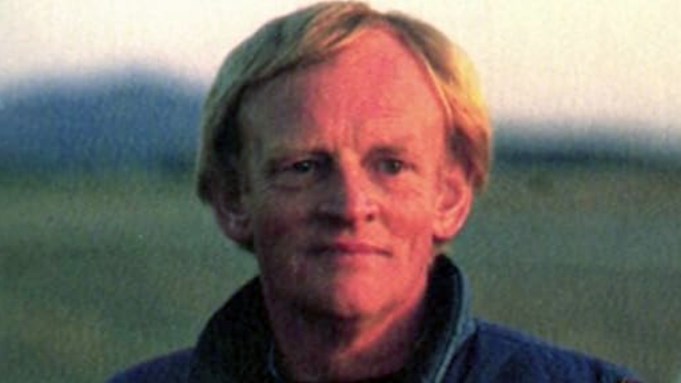The role of a producer for a given work of cinema may not have the exciting creativity of a director or a screenwriter, but such a person is nonetheless essential for the completion of just about every major cinematic production that comes into being. Producers come in many different forms – in addition to producers, there are executive producers, associate producers, and so on – and the roles they each play allow the creation of a film to go by as smoothly as intended (or at least they try to have it be that way). Producers are generally responsible for the supervision of nearly every aspect of a film’s making: selecting scripts, coordinating various creative tasks, acquiring financing, the list goes on; there indeed seems to be no limit as to what a producer may need to do in order to make sure that a film is finished in the most timely and effective manners one can imagine. Because of this, whenever a film (if not an entire series) is received positively by audiences, the producer is entitled to at least some credit for its success. A director or writer may have been responsible for the ideas at its center, but more often than not, it’s the producer who makes it possible for those ideas to amount to anything in the first place. As such, it can be rather disheartening to hear that a producer who contributed to some of the most popular film franchises in recent memory has passed away, and unfortunately, that has in fact happened with Robert Watts, whose production credits include the likes of “Star Wars” and “Indiana Jones”. On Monday, September 30th, Watts passed in his sleep inside his West Sussex home, ultimately making it to the ripe age of 86 and leaving behind a rather respectable legacy.
A London native born on the 23rd of May in 1938, Watts began his career in the film industry as a second unit and assistant director for the 1965 James Bond picture “Thunderball”, a role that he would continue to fill for various other films made throughout the 1960s, including “Hysteria” and “The Yellow Rolls-Royce”. It wasn’t long until he moved into production, however, starting with the 1968 Stanley Kubrick classic “2001: A Space Odyssey” before then moving on to such films as 1973’s “Papillon” and 1976’s “Sky Riders”. Interestingly, it was another film set in outer space that would truly get the ball rolling on Watts’ career as a producer, that of course being the 1977 George Lucas-directed feature “Star Wars”, a film that, at the time, few could’ve predicted would become the monster-sized sensation it ended up being. Despite only serving as production manager for that film, Lucas seemed to be impressed enough with what Watts was capable of doing and gradually had him move up the ranks throughout the production of his next few films.
For the next “Star Wars” film, 1980’s “The Empire Strikes Back”, Lucas (who would hand directing duties over to Irvin Kershner for this newer feature) assigned Watts to the position of associate producer, a role that he was given once more for another Lucas production, the Steven Spielberg-directed action-adventure blockbuster “Raiders of the Lost Ark”. Released in the summer of 1981, the Indiana Jones-introducer also proved to be a sensational hit at the box office, and that could only mean good things for Watts, as he could continue to move up in the ranks as both of these series progressed. For 1983’s “Return of the Jedi”, the final installment of Lucas’ original “Star Wars” trilogy”, Watts was promoted to an official co-producer title, then later became the primary producer for the next two “Indiana Jones” sequels: 1984’s “Indiana Jones and the Temple of Doom” and 1989’s “Indiana Jones and the Last Crusade” (the latter of which allowed for a reunion with James Bond actor Sean Connery). Each one of these films, as expected, became incredible box office successes, and as much as one may be inclined to credit Spielberg and Lucas for such achievements (which, in fairness, they do deserve for the most part), one shouldn’t overlook Watts’ contributions, as his skills as a producer made it possible for every one of these films to go through a relatively calm and chaos-free filmmaking process.
Outside “Star Wars” and “Indiana Jones”, Watts’ most famous work as a producer may be the 1988 animation/live-action hybrid “Who Framed Roger Rabbit”, an innovative blend of two very different cinematic mediums that required the efforts of two different production units – one for shooting live-action film, and the other for hand-drawing every animated character seen in this feature – in order for such an ambitious feat to be pulled off as well as it did. As director Robert Zemeckis shot the feature’s live-action components and director Richard Williams stepped in to bring the titular cartoon rabbit and his animated companions to life, Watts was one of a handful of producers who worked as hard as they could to make sure that this elaborate and expensive production would be completed in the least stressful manner possible. Despite some minor issues here and there, Watts’ efforts, in addition to those of every other individual who helped make the film, paid off tremendously, with the film becoming one of 1988’s biggest financial hits and later earning multiple prizes at the following year’s Academy Awards. In fact, when combined with the grosses of “Star Wars” and “Indiana Jones”, the total sum earned by the films Watts produced in this period is well over $3.34 billion in worldwide ticket sales.
Watts may not have done a whole lot of producing in the time since – his most recent credits as a producer include 1991’s “An American Tail: Fievel Goes West” and 1993’s “Alive” (as well as its 2013 documentary follow-up “Alive: 20 Years Later”) – but his contributions to cinema are nonetheless commendable, and those who knew him best were quick to pay tribute to a man who had been so pivotal to their films’ success. While several of the cast and crew members who had collaborated with Watts throughout his career were quick to share their thoughts and expressions of love and appreciation for the newly deceased producer, it was Frank Marshall, who directed the aforementioned “Alive” who had some particularly noteworthy words of appraisal for Watts as he learned about the producer’s passing: “We have sadly lost another great one, Robert Watts,” Marshall states in a posting to various social media platforms, further adding that “he was loved by all who worked with him, and I learned a lot from his vast knowledge, wonderful spirit and sense of humor. Sail on, dear friend, sail on”.



